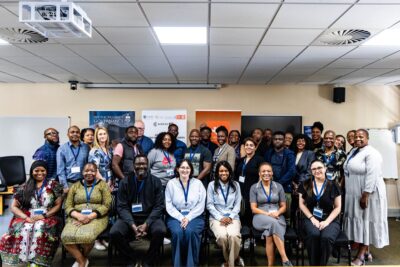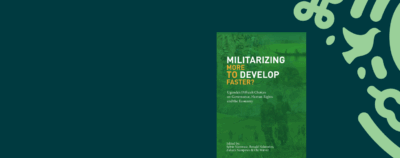In the Spring of 1979, the Chinese Academy of Social Sciences (CASS) sent to the United States a delegation of leading humanistic and social science scholars. (The term “social science” in China embraces disciplines which in American scholarship fall under the parent terms of “humanities” and “social sciences.”) This Chinese delegation conversed with several hundred American scholars and academic administrators in research universities, libraries, academies, centers, and institutes. The Chinese repeatedly emphasized the importance of increasing the flow of scholars, books, and ideas between the United States and the People’s Republic of China. American scholars responded enthusiastically to the prospect.
“The Commission went to China in early 1981 and subsequently prepared a report to the American academic community and the funders of scholarly exchanges.”One small part of this enthusiastic response developed into an American Humanities and Social Science Planning Commission. The Commission had in hand a generous invitation from Hu Quiaomu, president of the Chinese Academy of Social Sciences, to reciprocate the visit of the CASS delegation with a group of American scholars broadly representative of the humanistic and social science disciplines. The Commission went to China in early 1981 and subsequently prepared a report to the American academic community and the funders of scholarly exchanges.1Kenneth Prewitt, ed., Research Opportunities in China for American Humanists and Social Scientists (New York: Social Science Research Council, 1982). This article summarizes the major findings reported in much greater detail in the report.
Twelve humanists and social scientists and one natural scientist formed the Commission. The membership was balanced between China specialists and scholars who had, at best, an amateur’s knowledge of China. The non-China scholars included persons with experience in developing scholarly exchanges with Africa, Europe, Latin America, the Middle East, and Southeast Asia. The members were Daniel Aaron, Harvard University; Robert McC. Adams, University of Chicago; Mary Brown Bullock, Committee on Scholarly Communication with the People’s Republic of China; Wm. Theodore de Bary, Columbia University; Albert Fishlow, Yale University; Clifford Geertz, Institute for Advanced Study (Princeton, New Jersey); John C. Jamieson, University of California, Berkeley; Winfred P. Lehmann, University of Texas (cochairman); Eleanor E. Maccoby, Stanford University; Michel C. Oksenberg, University of Michigan; Kenneth Prewitt, Social Science Research Council (cochairman); Walter Rosenblith, Massachusetts Institute of Technology; and Frederic E. Wakeman, Jr., University of California, Berkeley.
American objectives in the exchange program
The case for an adequate understanding of China is too obvious to require elaboration. The Commission’s focus was on the next step—the part which an exchange program can play in furthering this understanding. We were specifically concerned with the appropriate role of the humanistic and social science disciplines—that part of the nation’s intellectual system which is responsible for comprehending the human experience.
The Commission quickly came to the position that the great promise provided by the normalization of Sino-American relations is not likely to be realized without a much deeper understanding, each society of the other, than presently exists. Sustained scholarship—not only but certainly including the sort conducted by the humanities and the social sciences—will be necessary to this understanding.
“From an American perspective, scholarship requires an active research presence.”From an American perspective, scholarship requires an active research presence. This research presence can accompany but differs in important respects from the teaching, lecturing, training, and technique-transferring role which the Chinese are inviting Americans to play. It can also accompany, but again significantly differs from, an exchange program, which stresses friendship or a particular cluster of foreign policy goals. To rest an exchange program on “what we can give to the Chinese to help them modernize” or on a “hands across the seas” sentiment would be to erode the core of what a scholarly exchange program provides: a contribution to a shared Sino-American capacity to understand the modern world, our respective roles in it, how it came to be, its intrinsic possibilities and likely limits, and thus to improve our ability diversely and separately to live in it.
This premise led in turn to a strong emphasis by the Commission on sustaining and extending an American research presence as a central purpose of the overall exchange program. The program should serve the research and training needs of the humanists and social scientists who constitute the nation’s China specialists: providing access to archives, materials, sites, and the life of the Chinese people, and upgrading language abilities by expanding the number of American scholars trained in Chinese languages. A successful program will also provide non-China specialists those scholarly opportunities that will hasten the incorporation of China’s experience, from ancient times to the present period, into the general study of the human condition.
In emphasizing American scholarly interests, the Commission assumed that the exchange program will continue to cooperate with the Chinese as they develop their own humanities and social sciences. This objective is now receiving substantial funds and is being actively pursued, both by American programs in China and by the training of Chinese in American universities. This objective, up to a point, merits support on its own terms. But the Commission believes that cooperation with Chinese purposes should be pursued in the context of American objectives. Obviously, it is in the interests of American scholarship on China to have access to colleagues in China whose research and writings interpret their own society. And it is in the interests of American scholars to have colleagues with whom collaboration is possible.
It is not likely that meaningful collaboration can be realized until the Chinese develop a more accurate understanding of American society—including its intellectual traditions and academic practices—than they presently have. The Chinese, of course, recognize that their isolation from the West, and especially the disruption of the Cultural Revolution, left them with very dated knowledge of the United States, and, more often, stereotypes and images which derive from ideology and “mindset” rather than from serious study. It is in our academic as well as national interest to assist them—by providing lecturers, curricular materials, books, and training—as they establish American studies programs and begin to train a new generation of American specialists.
There are obvious and legitimate purposes to be served by cooperating with the Chinese and their goals. Nevertheless, the Commission concluded that a failure to serve American scholarly interests will compromise and eventually undermine the very reasons for establishing an exchange program in the first place.
“A China that would permit open inquiry into its history or its communes or its bureaucratic practices would no longer be the China we know (or do not know) today.”The Commission realized the irony that, if fully achieved, American scholarly objectives would in some ways change the China Americans seek to study. A China that would permit open inquiry into its history or its communes or its bureaucratic practices would no longer be the China we know (or do not know) today. The American pressure to conduct independent research becomes an unwitting instrument of social change. For that reason, American scholars should not expect fully to attain their objectives. Furthermore, to design a program or to adopt objectives in order to “change China” is, in the judgment of the Commission, seriously misguided. Not misguided, however, would be a program designed to apply the best available American scholarship to an understanding of China.
Academic practice and policy in China
The prospects for an American research presence in China depend not only on how we conceptualize and design the exchange program, but also on how well we understand the current context in China. Accordingly, in the center of the Commission’s report there is an extended discussion of how the Chinese context shapes and limits scholarly opportunities (Chapter 4, “The Context for Realizing American Objectives”). Included is a review of the pre-1949 experiences in academic exchanges of both Chinese and Americans, a review from which the Commission drew what it believes is an important general lesson. Briefly, it mattered little, in terms of the success of various pre-1949 programs, whether the program favored the cosmopolitan or the provincial, the elite or the mass, the center or the periphery. What counted was the existence of a clear-cut policy on these fundamental issues. In a sense, the YMCA and Peking Union Medical College adopted quite different strategies, but both were successes because they addressed these issues forthrightly. Difficulties were predictable, even acceptable, because they were the logical consequence of conscious choice. The programs that failed were those which did not choose, but sought to serve all.
Also included in this chapter is a description of Chinese universities and research institutes, which are characterized as generally being rigid, hierarchical, inbred, compartmentalized, and segmented. The academic community is marked by distinct generational layering: The Western-trained generation, now mostly over 60 years old; the generation which began in the 1950s—many of whom were trained in the Soviet Union; then the faculty and researchers now in their 20s and 30s—the Cultural Revolution or “lost” generation; and finally, the new generation starting with the class of 1981, whose education had not been disrupted by political events.
The generational layering of the Chinese academic community, its cellular nature, and the repeated, divisive campaigns which the regime has waged against academics over the past 30 years all influence the Commission’s view of how to establish American relations with China’s humanists and social scientists. Chinese scholars are a much bullied, fragmented, and weary group. They remain patriotic and willing to serve their country, but for the most part they wish to do so while minimizing personal risk. They also hope to enhance the prospects for a peaceful, more secure future for their families, particularly because in many instances their academic affiliations brought suffering to their families.
The scars of the Cultural Revolution years have not yet healed; China still is a wounded society. It is likely to be many years under the best of circumstances before most disciplines attain the necessary level of national coherence and trust to sustain genuine intellectual interchange. Any institution with which Americans deal is likely to be faction-ridden, with each faction linked to a different external network of personal ties. Frequently, what appears to Americans as an agreement with a Chinese institution is viewed by the Chinese as an agreement with a faction within the institution, crafted and implemented to benefit that faction.
“Political vulnerability…is a deep and continuing part of the life of social scientists and humanists in China.”The Commission concluded on the basis of these observations that scholarship in China has before it an awesome set of tasks. At one level is the challenge to comprehend and articulate the Chinese path to socialist modernization. At another level is the job of designing and evaluating specific policies appropriate to the current modernization drive. The first task is somewhat analogous to the “founding period” in United States political history, when a group of intellectuals was challenged to think through the deeper theory of governance and economic development which became expressed in the political theory of the Constitution. The second task is somewhat analogous to the efforts of United States social science in the 1930s and again in the 1960s and 1970s to become “policy sciences” for the government’s efforts to deal with economic and social development. Either task is difficult by itself; joining them is a high-risk venture. And powerful political interests in China are closely watching how intellectuals will conceptualize “the Chinese path to modernization” as well as how well their recommended policies are working. Especially visible are the Chinese scholars with whom the exchange program is being negotiated. Political vulnerability, then, is a deep and continuing part of the life of social scientists and humanists in China.
Chinese perspectives on a foreign research presence
In considering American research opportunities, the Commission found it useful to identify the criteria which appear to determine whether a particular research project will be welcomed in China. The full report describes these criteria in some detail; here they can simply be listed:
- Conformity to Chinese bureaucratic and scholarly practice
- Isolation from the daily lives of the Chinese people
- Availability of trained Chinese colleagues
- Usefulness of the research to China
- Ease of monitoring for possible national security implications
- Reputation of the foreign scholar
The report examines each of these criteria from the point of view of the Chinese bureaucracy—and finds them quite reasonable from this point of view. Nevertheless, it concludes that the criteria provide an unfortunately limiting framework upon which to build a mutually beneficial, enduring exchange of ideas and scholars. From an American perspective, the most important criterion for evaluating a research proposal—its intellectual merit in advancing a rigorous comprehension of China and in advancing a disciplined theory—is missing. It urged strongly that all practical measures be taken, at this early but critical stage of United States-China scholarly relations, to establish a balanced research presence in China, a presence in which topics and researchers are selected on the basis of standard scholarly criteria.
Such a presence entails responsibilities as well. Not only should our scholars be excellent in their discipline and knowledgeable about China, with sufficient fluency in the language where called for, but they must have some acquaintance with contemporary Chinese bureaucratic practice. They must be mentally prepared for the rigors of research in China. They should receive thorough orientation briefings before departure so that their expectations can be realistic. And they should be sensitive to various ethical and cultural issues of doing research in China.
To seek a research presence in China means that great effort must be made to ensure that our researchers are aware of such issues. While the initial experience in this regard has generally been satisfactory to both sides, the Commission believes that increased attention is necessary. The national organizations and the universities engaged in scholarly exchanges should clarify the basic rules to which they expect scholars to adhere while conducting research in China. The Chinese are producing their own guidelines, but these may not cover all the considerations which a responsible American research presence should take into account.
Recommended response
“How should the American academic community respond? Should it simply acquiesce and accommodate its research to Chinese restrictions? Or should it retaliate and urge confrontation?”The Commission found that a significant gap exists between what it believes an appropriate research presence in China should be and what the Chinese currently are willing and able to permit. How should the American academic community respond? Should it simply acquiesce and accommodate its research to Chinese restrictions? Or should it retaliate and urge confrontation? The Commission heard Americans advocate both accommodation and sharp confrontation. Advocates of accommodation stress the need to respect Chinese national sovereignty, are satisfied with progress to date, believe the Chinese are making good-faith efforts, and/or view research as only part of the purpose of a stay in China. Advocates of confrontation believe the way to make progress with the Chinese is to threaten retaliation. To do otherwise is to institutionalize arrangements which may permanently foreclose research opportunities for certain scholars, disciplines, and methodologies. Focusing on the openness of the United States to Chinese scholars and the funding available to Chinese to study in the United States, proponents of this view strongly resent what they perceive as the imbalance or inequality of the current exchange programs.
The Commission examined the arguments for both accommodation and confrontation in some detail—and rejected both. It explored, instead, alternative strategies which will secure an American research presence while avoiding a “hardline” which would be difficult to implement and perhaps close research opportunities even further. The Commission concluded with recommendations for the most effective way to manage the increasingly diversified exchange program.
In drafting its report, the Commission was aware that it will be read by friends and colleagues in China. This did not alter what it had to say, for it believed that the more candid each side is in presenting its concerns as well as its aspirations, the sooner will both sides move toward those conditions of openness without which a global scholarly community cannot exist.
Kenneth Prewitt and Winfred P. Lehmann, University of Texas, served as cochairmen of the American Humanities and Social Science Planning Commission, whose visit to China was part of the 1981 exchange program of the Committee on Scholarly Communication with the People’s Republic of China (CSCPRC). The CSCPRC is sponsored by the American Council of Learned Societies, the National Academy of Sciences, and the Social Science Research Council. The views expressed in this article as well as in the report of the Commission are those of the members and not necessarily those of its sponsoring organizations.
Interested persons may obtain a copy of the Commission’s report from the Publications Office, Social Science Research Council, 605 Third Avenue, New York, New York 10158, or from the National Academy Press Warehouse, National Academy of Sciences, 3180-B Bladensburg Road, N.E., Washington, DC 20018. Enclose $2.00 for postage and handling.
Kenneth Prewitt is the Carnegie Professor of Public Affairs and Special Advisor to the University President at Columbia University. He also served as 20th director of the United States Census Bureau (1998–2001), senior vice president of the Rockefeller Foundation (1985–1995), and director of the National Opinion Research Center (1976–1979). He served as president of the Social Science Research Council twice, between 1979 and 1985, and again between 1996 and 1998. His most recent book is What is Your Race? The Census and Our Flawed Efforts to Classify Americans (Princeton University Press, 2013).
This essay originally appeared in Items Vol. 36, No. 1–2 in June 1982. Visit our archives to view the original as it first appeared in the print editions of Items.














